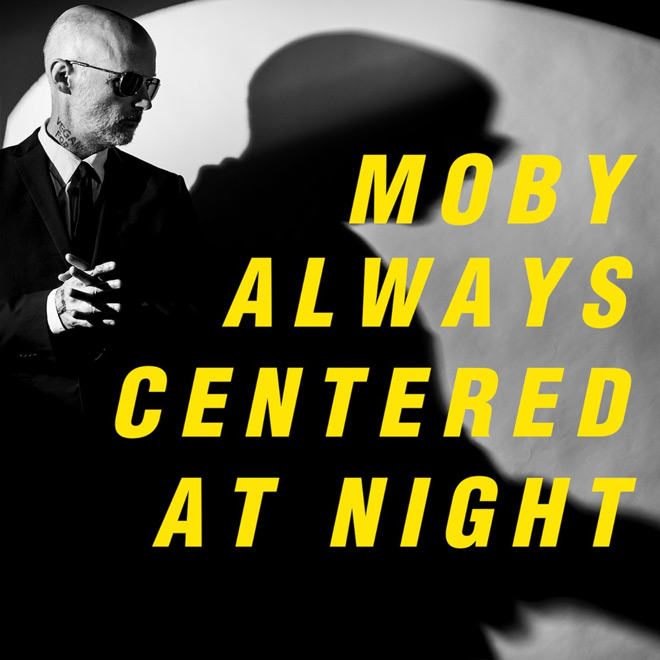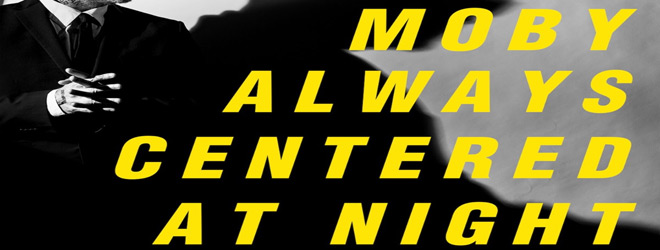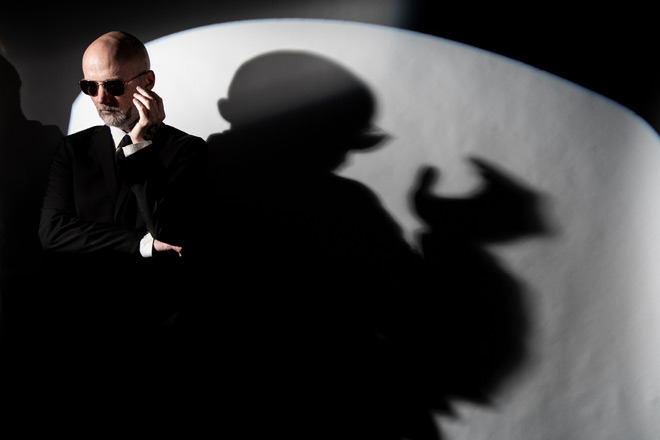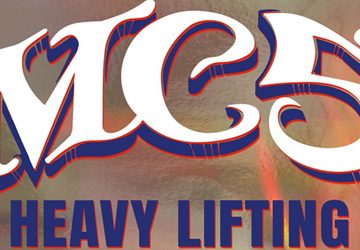The anticipation for the June 14th release of Moby’s twenty-second studio album, Always Centered at Night, has been a runaway train since it was announced back in March of this year. The release comes right around the 25th anniversary of his 1999 chart topping album, Play, and will no doubt thrust Moby back into the spotlight after also announcing his first live dates in over a decade.
However, when it was further relayed that Moby would be putting together a collection of underappreciated musicians from around the world to feature separately on each of the thirteen tracks, a slight grumble was heard throughout the world of music. His influence was certainly missed in his absence, but fans that smartly choose to hop on this musical wagon will be far removed from disappointment.
Moby’s recruits have created a record that yearns to provide hope for the globe while admitting its past transgressions. Through employment of artists such as Gaidaa (Overture, Something True), the late British Poet Benjamin Zephaniah (Refugee Boy, Talking Turkeys), and Jose James (Lean on Me, 1978), Moby provides a collaborative musical experience that not only showcases the phenomenal talent and story-telling capabilities of those featured, but as he sort of rotates around them all in the shadows, Moby continuously steers the narrative with his instrumental prowess and deep, complex understanding of musical theory and limitless genres. This potion of sounds has led to an exhilarating experience that serves those underappreciated well. This is while Moby ensures that he is always floating along in the darkness of the track, stoking and molding the growing flames of the artists he invited in on this record.
As Moby works to string his narrative of change and fleeting hope, he remains buoyed by the vividly profound contributions by his cohorts. None more so than the aforementioned Benjamin Zephaniah, who features on the third track of the record, “Where is Your Pride?” Starting off with an upbeat drum machine, Zephaniah proceeds in a robotic, almost propaganda-like manner, with stoicism that breeds an almost Orwellian in the track; challenging the audience’s morality, their dignity, and the fact that we are all seemingly wasting away this precious existence we hold so close. What may have appeared to be an odd decision for inclusion, bringing Zephaniah on to incorporate his own poetic devices into the mix was a genius decision that demonstrates Moby’s ability and desire to push the envelope, to break through what is expected and continue revolutionizing the art of music.
With Moby taking a backseat on vocals throughout the entirety of the record, it allows him more room to explore instrumentally; such as the yearning piano that pulls up the curtain on the album with “On Air” featuring serpentwithfeet (Soil, Deacon). A stunning combination with melodies that sparkle with perhaps irrational hope for us all, it is the sad undertones of what is actually occurring in our hearts.
Moby further elevates his efforts to awaken the joy and possibilities that we all seem to, as humans, forget are constantly circling around us. This is done so through the wide expanse of genres on this album, and with “Wildflame” he explodes in a Greenwich Village drumbeat that sets your foot tapping upon the utterance of the opening note. Doing so with Danae Wellington (The Blue Jeans Ask Her, Spit Out the Myth), she enters in a raspy, darkly intoxicating vocal performance that will raise temperatures in music venues around the world, as listeners fall closely together, dancing towards some understanding of what the world is and the meaning of their station within it.
Working to strike us with the love and maternal instinct of mother nature herself, Moby also employs the talented JP Bimeni (Give Me Hope, Four Walls) on the glorious track that is “Should Sleep.” Bimeni utilizes the fusion elements of Moby’s instrumentals and jam-filled eclectic synchronization to deliver a magical performance with a vocal effort that at times verges on Gregorian chant. This all makes “Should Sleep” an uplifting number that is primed and ready for the speakers of gyms and clubs throughout the entirety of the globe. Here, Bimeni and Moby strive to awaken us to the possibility and necessity of change, shouting at the audience to awaken, get up, and work toward a common good, as things smolder around us.
Simply put, at its heart, Always Centered at Night, is what electronic music is built on; getting hearts pumping, bodies moving, and the emotional pulses racing towards some uncertain and perhaps even neon-filled destination where we, without a doubt, will all learn something about ourselves. However, with Moby reeling in elements of Jazz, R&B, Rock, Techno, and House music, the clarity of what it means is drastically raised. This ensures that Moby’s gentle and often warm plea for the conjuring of a new world has the power and rage of a cruelly driven hammer.
Aiming to strike us with the love and maternal instinct of mother nature herself, Moby tirelessly works to deliver a piece of art that may propel its listeners to stand up and ask, “what do I need to do?” in order to facilitate the growth of love and happiness throughout the world. Through the further inclusion of underappreciated, but also niche artists – such as Raquel Rodriguez, India Carney, as well as Choklate – Moby shows that diversity of material and delivery can lead to monumental changes within an area of life.
A great pioneer, Moby is one again changing the world around him. It may not be all Moby, but Moby is all of it. That is why Cryptic Rock gives Always Centered at Night 4 out of 5 stars.







No comment